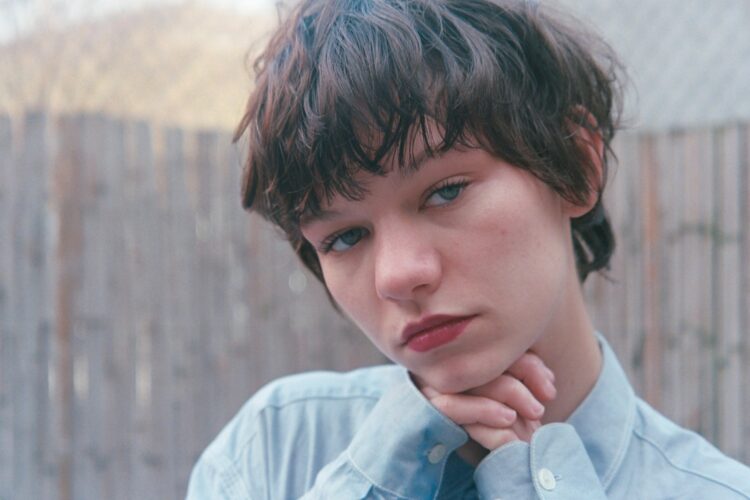
Not everyone who acts like a friend actually cares. Some people stay close only because it benefits them — whether that means favors, money, attention, or access. At first, it can feel like genuine closeness, but over time, small patterns reveal their motives. However, what feels like a connection is really a calculation. Here are 15 painful signs to look for.
They Only Reach Out When They Need Something

Their calls and messages rarely come without a hidden reason. Almost every time, there is a favor attached: a ride, advice, an introduction, or even money. When you reach out first, the energy feels distant or distracted. This shows that contact with you is less about connection and more about access. Genuine closeness has a balance of giving and receiving. If every interaction feels like a transaction, the truth is clear — they are keeping you close not for you, but for what you can provide.
They Disappear When You Need Help

Friendship is tested during difficult times. Someone who leans on you for support but suddenly becomes unavailable when you need the same reveals their true intentions. They may make excuses, leave your messages unanswered, or offer shallow words without action. Their absence is not an accident; it shows they never valued the bond itself. They value convenience. A real friend shows up in both sunshine and storms.
They Flatter You to Get Their Way

Compliments can be genuine, but when flattery always appears right before a request, it’s a tactic. They may praise your skills, your generosity, or your character, only to slide into what they want from you. This kind of praise is not rooted in appreciation but manipulation. It is designed to soften your resistance so you’ll agree. A true friend celebrates you without expecting anything in return.
They Don’t Celebrate Your Wins

A real friend lights up at your success. Someone pretending to be close doesn’t. When you share good news, they may react with lukewarm enthusiasm, shift the conversation quickly, or minimize what you’ve achieved. Their lack of joy shows they are not emotionally invested in you. Your happiness offers them no benefit, so they dismiss it. Genuine closeness finds fulfillment in each other’s growth.
They Keep Score of Every Favor

When they do something for you, it never goes unmentioned. They remind you of it later, using it as leverage to demand more from you. Meanwhile, the many times you helped them fade conveniently from their memory. They turn friendship into a debt-collecting arrangement, keeping track of what you “owe.” Real closeness never measures loyalty in this way. It gives freely without expectation.
They Avoid Deep Conversations

A true friend will care about your inner world — your struggles, dreams, fears, and joys. Someone using you avoids that depth because it requires emotional investment. Conversations with them remain shallow, often circling back to their needs, their stories, or their struggles. When you try to share something personal, they brush past it or redirect. Their lack of curiosity shows they don’t want intimacy; they want your presence only as long as it serves them.
They Show Up Only in Good Times

They are always available when there is fun to be had — parties, outings, vacations, or celebrations. But the moment life becomes complicated, their presence vanishes. They don’t want to sit with you in grief, listen through pain, or help during a crisis. These are fair-weather friends who enjoy access to your light but flee from your darkness. Real closeness does not pick and choose the moments of connection.
They Copy You but Don’t Credit You

They may imitate your style, mannerisms, or even ideas, yet they never acknowledge you as their source of inspiration. Instead, they present these qualities as their own. They stay close not because they admire you, but because they want to harvest what you create. True admiration celebrates the origin; exploitation hides it. When someone mirrors you without credit, they are not valuing you as a person. They are valuing the opportunity to take from you and disguise it as their own.
They Gossip About You Behind Your Back

Their friendliness in front of you does not match what they say when you are not around. They criticize, mock, or reveal your private struggles to others. They maintain access to your life for leverage, not for care. This two-faced behavior exposes the lie of closeness. A real friend protects your name even when you are absent. A user tarnishes it because your reputation means nothing to them compared to the benefits they gain from pretending to be connected to you.
They Drain You Emotionally

After spending time with them, you feel heavier instead of lighter. They unload their frustrations, demand your emotional energy, and monopolize your attention. Yet they rarely ask about your state of mind or offer genuine comfort. Your role becomes caretaker while they endlessly take. Friendship requires a balance of listening and being heard. Someone who drains you emotionally while never offering support is not close to you; they are consuming your compassion like fuel.
They Act Competitive Instead of Supportive

Rather than celebrating your milestones, they use them as benchmarks to outdo you. If you buy something, they rush to buy better. If you share good news, they counter with theirs. Their closeness exists only to measure themselves against you. Envy hides behind their smile, and competition replaces encouragement. Real closeness finds joy in your joy.
They Get Defensive When You Say No

Healthy relationships respect boundaries. When you decline a request, a genuine friend accepts it without judgment. Someone who is using you reacts differently. They sulk, guilt-trip you, or accuse you of being selfish. Their disappointment is not about losing your company; it is about losing access to what they wanted from you. If your “no” is consistently met with anger or manipulation, their closeness is conditional. They value you only as long as you continue to give.
They Rarely Give Without Expecting Return

When they do something for you, it is never without expectation. Every gesture is transactional, whether it is a ride, a favor, or a gift. Later, it resurfaces as a way to demand more from you. True closeness gives freely because the joy comes from helping. A person who expects repayment for every small act is not giving; they are investing. And the return they expect reveals the truth: their closeness was never sincere.
They Avoid Vulnerability With You

They ask for your support, energy, and attention, but rarely open up about their own struggles. The connection remains one-sided because they are unwilling to share themselves with you. Keeping things shallow allows them to take without offering trust in return. Genuine closeness requires vulnerability — the courage to let someone see your fears and flaws. Someone who avoids this while still taking your care is not being close. They are protecting themselves while exploiting your openness.
Deep Down, You Feel It

Perhaps the strongest sign is the quiet knowing inside you. Something feels wrong. The connection leaves you tired, unseen, and unappreciated. Intuition often senses what words cannot confirm. Pretending to be close is hard to spot at first, but your instincts whisper the truth: the relationship is not mutual. If you walk away from them feeling drained instead of nourished, you are not experiencing friendship. You are experiencing exploitation carefully disguised as closeness.

